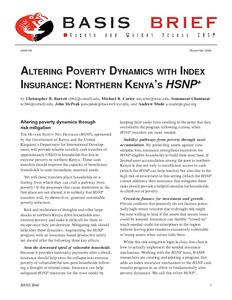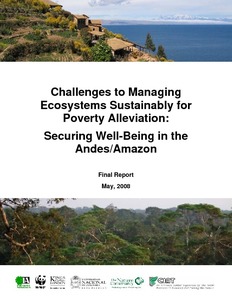Agricultural biodiversity to manage the risks and empower the poor. Proceedings of the International Conference 27-29 April 2015, Rome, Italy.
An International Conference was held in Rome, Italy 27-29 April 2015 to launch the IFAD and EU supported Project ‘Linking agrobiodiversity value chains, climate adaptation and nutrition: Empowering the poor to manage risk’. The event brought together people with different expertise to discuss the role of agricultural biodiversity in fostering more resilient livelihoods and solicit their guidance to refine the methodological framework for the Project.








